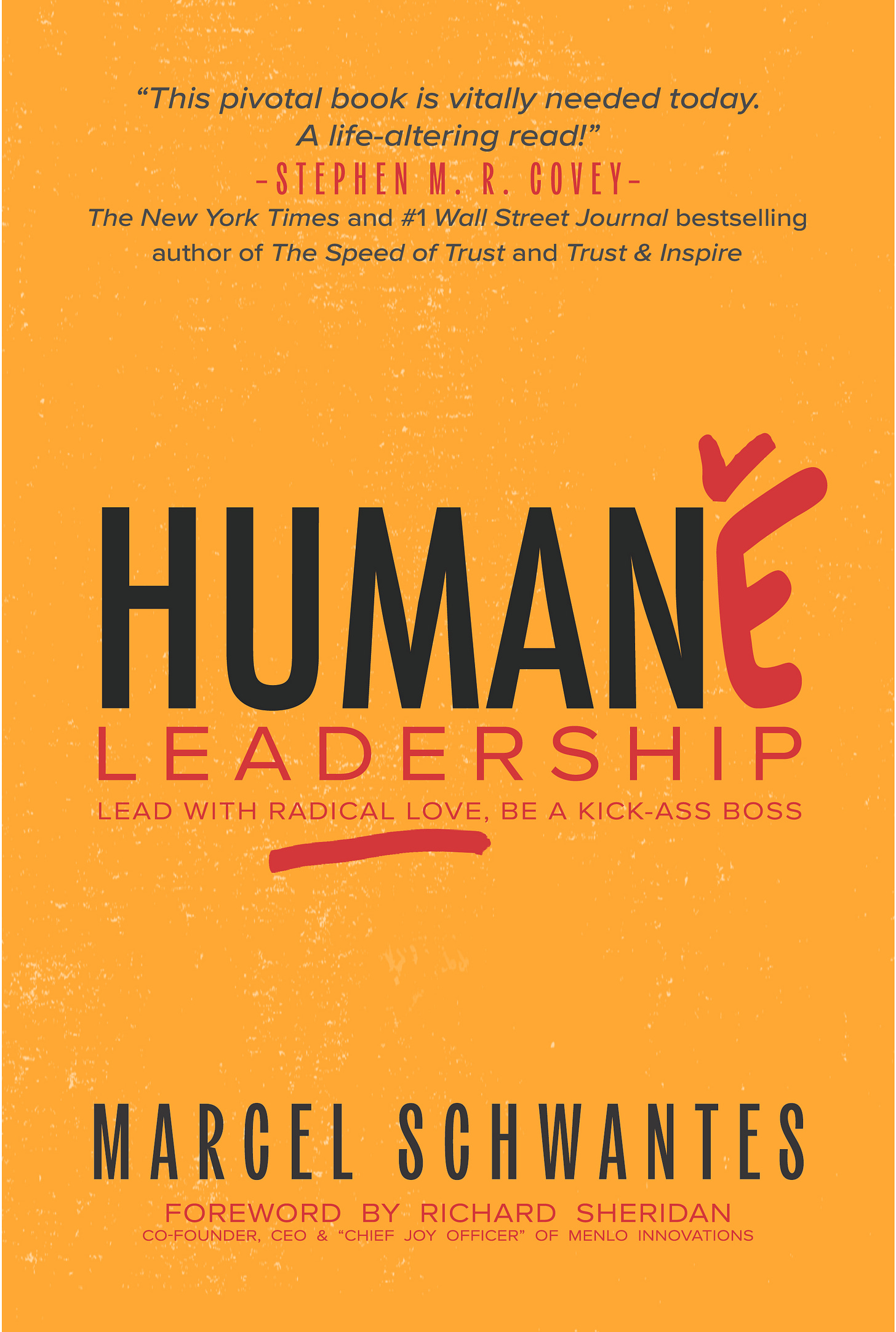Want to Increase Your Happiness This Year? Science Says 1 Rare Habit Truly Stands Out
Research suggests that companies and individuals committed to living out this principle will see a happier workplace and an improved bottom line.
This week continues our five-part series on the leadership framework I present in my upcoming book: Humane Leadership: Lead With Radical Love, Be a Kick-Ass Boss. The evidence-based principles of Humane Leadership are designed to create workplaces where leaders lead with authenticity and confidence, inspire radical and practical love, and drive exceptional performance.
Today’s post is about kindness. Kindness in leadership isn’t about being soft; it’s about being genuine. A kind leader is one who shows empathy and actively listens, building a foundation of trust and collaboration. By leading with kindness, leaders create a work environment where employees feel valued, respected, and motivated to perform at their best.
If you’re joining me for the first time - welcome! You’ve arrived at a place dedicated to helping you grow as a leader. To get started, click the red button below, and I’ll do everything I can to provide you with insights, tools, and pathways to help you lead with greater clarity, impact, and care.

Positive psychology has got me hooked. This explosive field’s body of research is telling us that if we desire a life of happiness, and if we truly want to experience its psychological, physical, and social benefits, we need to train our brain to the “positive.” This can only be done through intentional action and choice. Yes, every day.
Shawn Achor, one of the world’s leading experts on the connection between happiness and success, said this in his viral TED talk:
What we’re finding it that it’s not necessarily reality which shapes us, it’s the lens through which your brain views the world that shapes your reality, and if we can change the lens, not only can we change your happiness, we can change every single educational and business outcome at the same time.
90 percent of your long-term happiness is predicted not by the external world, but by the way your brain processes the world. And if we change it, if we change our formula for happiness and success, we can change the way that we can then affect reality.
Do you work in a challenging and not so civil setting? Is conflict among teams high? Are people not appreciated for their work? What if we could employ simple, but rare, workplace practices to help shift how our brain processes and views the immediate world around us, so we’re happier and more productive?
The Key to Happiness: Kindness
Organizationally, plenty of research suggests that when leaders are committed to creating an environment of kindness and compassion lived out in corporate values, they will see a happier workplace and an improved bottom line.
In one study reported by Greater Good magazine, a group of employees at Coca-Cola in Spain were asked to perform five acts of kindness for their coworkers for a month — every day things like buying coffee, writing a thank-you email, or offering encouragement. Here are the results of this study as published in Greater Good:
After the experiment, givers and receivers reported greater well-being and satisfaction of their basic psychological needs, when compared to a control group. Givers felt a greater sense of competence and autonomy after the experiment; one month later, they had higher life and job satisfaction, as well as fewer symptoms of depression. Receivers felt more autonomy – and, one month later, they also felt happier.
More strikingly – according to surveys of behaviors people saw and performed during the month – receivers seemed to be performing more kind acts toward others. They were paying kindness forward.
Kindness With The Five-Minute Favor
On an interpersonal level, kindness can be delivered in many forms. One strategy is the “five minute favor.” Impacting both giver and receiver with positivity, five-minute favors are selfless giving acts you do for someone without asking for anything in return from the person whom you help. Examples of five-minute favors include sharing knowledge; making an introduction; serving as a reference for a person, product, or service; or recommending someone on LinkedIn.
Bringing this idea home, Wharton professor Adam Grant, who introduced the five-minute favor in his bestselling book Give and Take, said in a Facebook status update: “Giving is about more than donating money. It’s about sharing your capabilities, content, and connections – and above all, giving others the chance to be heard, respected, and valued.”
Self-Kindness With Gratitude
Now that you’ve expressed kindness organizationally and through interpersonal means, don’t neglect nurturing yourself with self-kindness. One way is by expressing more gratitude in your life, as more and more research reveals its benefits. But according to a national survey on gratitude commissioned by the John Templeton Foundation, Americans are notoriously bad at expressing it!
Shawn Achor has a solution with a simple two-minute exercise anyone can do in the morning, every day. Here’s how it works: Write in detail about one positive experience you’ve had during the past 24 hours. Make sure to bullet point each detail you can remember.
According to Achor, this allows your brain to relive the experience, which teaches your brain that the positive behavior matters. It works, he says, since the brain can’t tell the difference between visualization and actual experience. In essence, you’ve just doubled the most meaningful experience in your brain.
If you do this ritual every morning for 21 days, your brain reprograms with this trajectory of meaning running throughout your life. In fact, research found that patients suffering from chronic pain or disease who did this for six weeks in a row had dropped their pain medication by 50 percent six months later.
Here’s to a happier and more fulfilling 2025.
Looking Ahead
Next week, we’ll explore the third principle of Humane Leadership: humility.
Humility in leadership means putting others first while being mindful of your own limitations. Humble leaders are strong in self-awareness, open to feedback, and ready to learn from anyone, regardless of rank or experience. They lead by example, recognizing that the success of their team is their success, not just their own. Humility cultivates a culture of growth and inclusivity.
Available for pre-order on March 15, Humane Leadership offers a fresh, compelling vision for what it means to be a kick-ass boss—one who leads with empathy and integrity, all while achieving outstanding business success. This book is a must-read for anyone looking to revolutionize their leadership style and create a workplace culture that attracts top talent and fosters lasting loyalty.
If you’re joining me for the first time - welcome! You’ve arrived at a place dedicated to helping you grow as a leader. To get started, click the red button below, and I’ll do everything I can to provide you with insights, tools, and pathways to help you lead with greater clarity, impact, and care.
For those ready to go deeper, here are a few ways I can support your leadership journey:
🎙️Listen to the Love in Action Podcast: Join deep, engaging conversations with top business experts and explore how practical love and care are great for people and profits. Listen on Apple Podcasts, Spotify, or your favorite podcast app.
🛠️ Curious About Coaching? Become a Substack Founding Member and receive two 30-minute, one-on-one coaching sessions. It’s a practical, low-commitment way to explore how coaching can support your leadership growth.
🚀 Leadership Coaching: Most coaching focuses on what leaders do - but real change starts with who you are. My coaching helps you build deep self-awareness, expand your influence, and create meaningful, lasting impact. Schedule a 30-Minute Discovery call to learn more.






